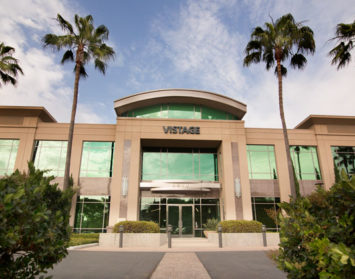 Leasing office space can be a challenge for startups. Entrepreneurs are often so focused on their business that they don’t fully understand the process, timing and expenses necessary to find a suitable location to run it.
Leasing office space can be a challenge for startups. Entrepreneurs are often so focused on their business that they don’t fully understand the process, timing and expenses necessary to find a suitable location to run it.
Given that real estate is typically the second or third largest fixed expense after payroll, it helps to consider several factors when budgeting for this line item. Location, for example, is just one of the things that should guide your decision. There’s also quality, rental rate, security deposit, tenant improvements, maintenance, infrastructure, furniture and size.
Over the last 10 years, I’ve worked with innumerable startup owners who have had more pain than they expected during their hunt for office space. Four issues seem to come up again and again.
Subleasing
While subleasing space may not seem glamorous (thanks, in part to the “as-is” condition of the facility), you can find great value as the second owner.
Most companies who are downsizing or marketing space for sublease are in loss mitigation mode – and as such, they’re more motivated to grant concessions than building owners. I can negotiate a 30-50 percent rate reduction on most subleases compared to leasing direct space. That’s a huge savings. Many times startups can also obtain space as “plug and play,” meaning items such as phone systems and furniture are included.
The biggest benefit to subleasing, however, can be the reduced security deposit. Most security deposits for sublease space are a fraction of what other landlords will require from an early stage company with little operating history. And if you’re on a shoestring budget, that’s key.
Securitization
Startups want to invest money into R&D, people and marketing. They don’t want to tie up thousands of dollars in a security deposit or letter of credit. Unfortunately, companies with a short operating history or that aren’t yet generating a profit may find it challenging to alleviate this issue entirely.
When a sublease isn’t an option, think about taking the space as-is with little or no improvements. This helps you minimize the upfront capital required by your landlord (and thus their risk) and can ultimately reduce your security deposit. You’ll still need to budget a security deposit or letter of credit that ranges from three to six months of rent – but if you take the space as-is, you could get away with a security deposit of just 2-3 months.
Lease Term
Most building owners will demand a minimum two to three year lease term on already improved space and a minimum five year lease term for brand new or “shell” space. Before you start touring space with your real estate partner, take some time to map out headcount projections during that period.
Yeah, it’s hard to see that far into the future, but give it your best shot. Some type of headcount plan is better than none, since you can match these growth rates with expansion rights in the lease and/or length of lease term.
Also, be aware of your exit strategy. If the plan is to sell the company in a few years, consider matching the anticipated sale date with the lease expiration.
Timeline
The length of time it takes to secure space is a common misconception. Startups often approach me hoping to be in their new digs within 30 days. That’s not impossible, but it does limit your ability to negotiate a good deal.
Strategizing, planning, negotiating and improving commercial space typically takes nine to twelve months. Can it be done in 30-90 days? Yes. However, a shorter time frame limits your options, reduces your negotiating leverage and may lead to mishaps during the process.
In order to play it safe, budget a six-month timeline from day one until to move-in. This will allow your company enough time to plan, find space, negotiate the deal, install IT infrastructure, make minor cosmetic alterations and move in.
As an entrepreneur, you already know the importance of flexibility. Just keep that in mind as you begin the hunt for office space. It will not only make things less painful, it will better sync with your business plan.
Scot Ginsburg is an executive vice president of Hughes Marino, a global corporate real estate advisory firm that exclusively represents tenants and buyers. Contact Scot at 1-844-662-6635 or scot.ginsburg@hughesmarino.com to learn more.








